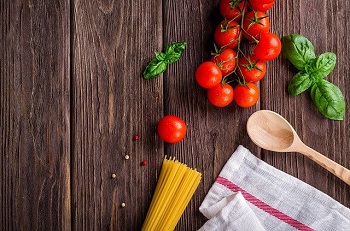What Foods should People with Pelvic Inflammatory Disease Avoid?
Pelvic inflammatory disease is a common disease in women, easy to cause pain in the waist and abdomen and can also cause other complications, such as oviduct and ovarian abscess, ectopic pregnancy, etc. Therefore, the females who suffer from pelvic inflammatory disease must take active treatment.
In addition to the conventional drug treatment, they should also pay attention to conditioning in daily life, improving bad living habits, and giving more attention to diet.

Do you know some food that women with pelvic inflammatory disease should avoid?
1. Avoid cold and raw foods
Pelvic inflammatory disease has a very close relationship with blood stasis, leading to patients with different degrees of pain in the lower abdomen. So patients also eat some raw and cold food at this time, such as ice, cold fruits, and melons, which will lead to more severe stasis, more obvious pain, and affect the life of patients.
2. Avoid irritating foods
Pelvic inflammatory disease is a kind of symptomatic fever disease. If patients continue to eat some warm and nutritious food, such as cattle, red ginseng, mutton, dog meat, etc., it will lead to more serious diseases and even abnormal symptoms such as a bitter mouth and hot body.
3. Avoid spicy fried foods
Patients with the pelvic inflammatory disease are very easy to appear pelvic congestion. If patients also eat this spicy fried food, such as pepper, star anise, fried pork ribs, and other food, it will lead to extreme local congestion, and the disease is more serious.
4. Duck neck
Especially the duck neck of salted ducks, it contains a lot of lymph. Because pelvic inflammatory disease contains inflammation, if taking a lot of lymph, it is likely to cause pelvic inflammatory disease into pelvic cancer. So those who usually love to eat duck neck women temporarily do not eat this food in pelvic inflammatory disease after the mouth.
5. Pig's trotters
Pig's trotters taste very delicious and contain a lot of collagen. This is a breast enhancement food, usually a lot of women's preference. But once got a pelvic inflammatory disease, then patients should eat pig's trotters as little as possible. It is because pigs' trotters contain a large amount of collagen, which can stimulate the regeneration of inflammatory cells, exacerbating the condition. Therefore, patients with pelvic inflammatory disease can not eat pig's feet.
6. Red dates
Red dates are a kind of food to enrich the blood and taste crispy, so patients with pelvic inflammatory disease doubt why they can't eat red dates? This is because jujube contains much red blood cell protein, eats more, and easily suffers from too much internal heat, and like pig's feet, easy to stimulate inflammatory cells. It is unfavorable to eat red dates while getting pelvic inflammatory disease.
In addition to the food that cannot eat above, patients with pelvic inflammatory disease can eat some beneficial food. They can eat some fresh fruits and vegetables, like green vegetables, white ribbon, tofu, eggs, spinach, apples, oranges, bananas, dragon fruit, and other food. And foods high in protein, like lean meat, eggs, milk, soy products. Or light, easy to digest food, such as millet porridge, yam, rice soup, etc.
Clinically, what methods can the patient take?
For pelvic inflammatory disease, patients should be given a combination of traditional Chinese and western medicine to be treated together. Antibiotic drugs often include Azithromycin, Quinolone antibiotics, and so on. Generally, it is necessary to combine the traditional Chinese medicine treatment of activating blood circulation and removing blood stasis, such as Fuyan Pill.
It can relieve the symptoms of abdominal pain, diarrhea, and irregular menstruation, regulate Qi and blood, invigorate the kidney and play an anti-inflammatory and antibacterial role. It does not produce drug resistance and side effects.
The second method is surgical treatment. It is mainly applied to two cases, respectively, a lump, hydrosalpinx, or cyst patients. There is also a kind of circumstance in infectious patients whose lesions are small but trigger inflammation. The purpose of the surgery is mainly to treat thoroughly, and after the lesions, patients have no chance of recurrence. If the patient is a young woman, it would normally be necessary to keep the ovaries.
Recommended Readings:
Notice Menstrual Diet Taboo, Please Eat Correctly
previous pagePelvic Inflammatory Disease Nursing Methods
next page
You may also be interested in
- Daily Care Tips for Pelvic Inflammatory Disease Caused by Ureaplasma Urealyticum
- Treatment of PID
- Why Does Pelvic Inflammatory Disease Cause Fatigue? Don't Ignore These 5 Symptoms!
- Can Abnormal Vaginal Discharge Cause Pelvic Inflammatory Disease?
- Can Pelvic Inflammatory Disease Cause Intestinal Symptoms?
Testimonials
- Adenomyosis with Ureaplasma Urealyticum Cured by Fuyan Pill
- Tubal blockage with hydrosalpinx can be cured by TCM shortly
- Fuyan Pill Helps A woman with Adenomyosis Get Pregnant
- A Woman with Hydrosalpinx Is Cured with Fuyan pill
- Pelvic Inflammatory Disease Testimonials
- Irregular Vaginal Bleeding and Endometrial Thickening Cured by Fuyan Pill
- Pruritus Vulvae and Frequent Urination: Mycoplasma Infection Cured after 2 Courses



